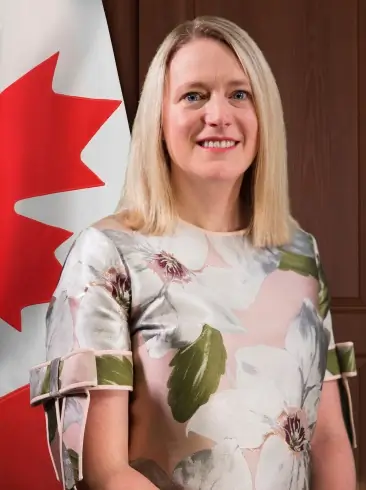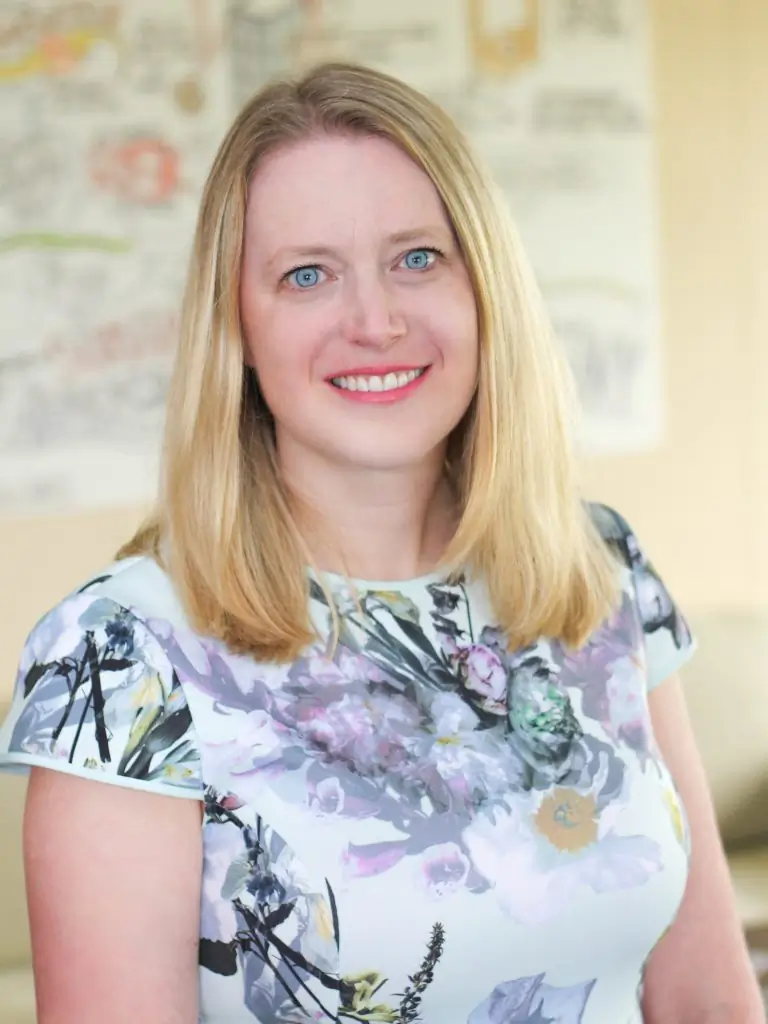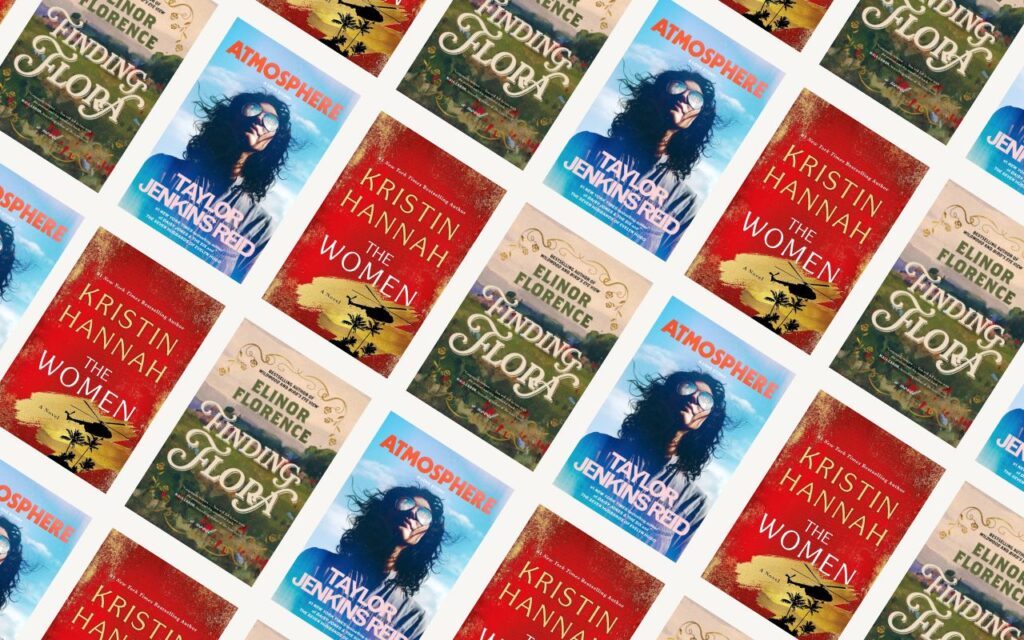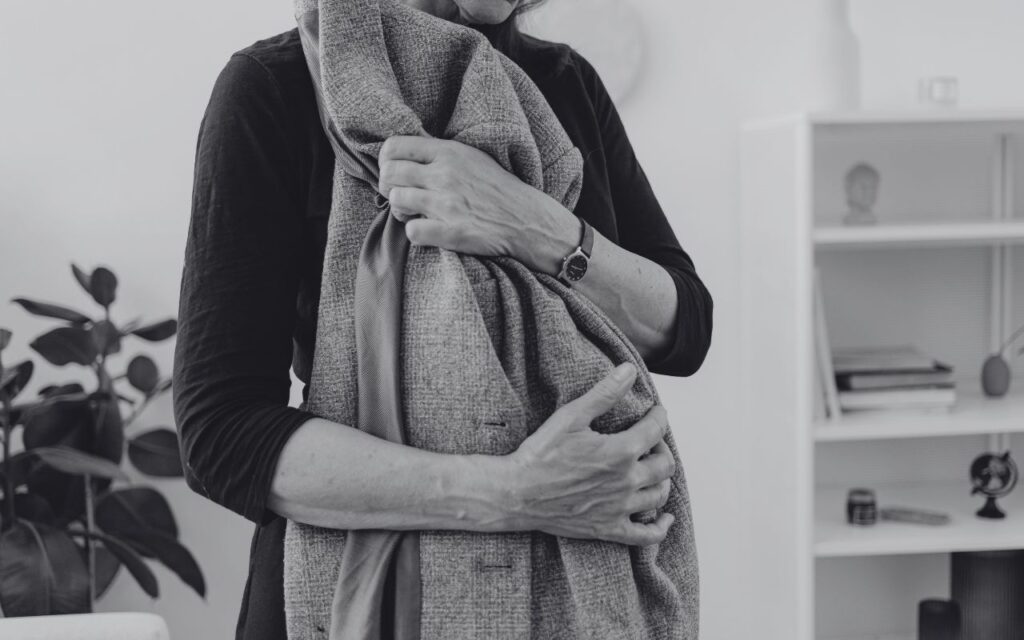
Finding a passion for public policy
Jennifer Stewart: Have you always been so passionate about policy?
Ailish Campbell: No, I thought that I would be a teacher. I did my PhD at the University of Oxford back in the day, looking at European and Canadian economic issues. So, for a long time there, I probably thought I would end up maybe as a professor, maybe in the private sector. With the example of both of my parents, who were teachers, I think public service was always where I was headed and what I was meant to do, whether I realized it or not. It’s pretty awesome that it’s taken the expression of getting to work on trade and financial and international policy issues today.
Catherine Clark: Did you have a dream job as a kid? How did you end up in this field?
Ailish Campbell: No, I certainly didn’t; my brothers and I are the first generation in our family to go to university full-time. As Canada’s Chief Trade Commissioner and Assistant Deputy Minister, I wouldn’t even have known what those words meant. But I was always wanting to see a lot of ambition for Canada, always being very competitive, always wanting to be part of teams that are serving with excellence. If you think that very senior women have a master plan, that isn’t always the case. They’ve just been able to take opportunities when they’ve come.
Being a woman in a male-dominated industry
Jennifer Stewart: You’ve held incredibly senior roles in various areas not traditionally tied to women: finance, defence, trade policy. Did you face pushback because of your gender? And how did you react?
Ailish Campbell: Canada is one of, if not the, best place in the world to be a woman. Yes, there was pushback — “Bossy girl, who do you think you are?” — or many times accompanying my team members, and someone mistaking me for a secretary. But none of that has ever bothered me; that always tells me more about the other person.
Catherine Clark: You seem not to let that faze you; is that just who you are? Or have you had to work at that?
Ailish Campbell: You have to work at that. You have to become quite thick-skinned about it. But at the same time, I have one abiding vision: we will get to equality for women. There are many other barriers, particularly for Black and Indigenous women. There’s so much work to do, and the work has to get done. We are not taking no for an answer. So yes, I’m here and, for example, I could spend a lot of time thinking about what people did or didn’t say or various pieces of feedback.
But that’s not where I’m going to spend my energy. There’s only so much energy that we’re given every day, and I have to keep some of my energy for my children and my husband, Dan; I have to keep my energy for my friends. I wasn’t doing such an excellent job of that during the emergency phase of the pandemic.
But now I have an incredible team; I’ve got to spend my energy on them. Our trade commissioner service clients are serving, of course, ministers, first and foremost. I just don’t have energy left over. I imagine a garbage can and drop it in when that happens — it’s not even on my radar anymore. We have to keep going forward.

Finding mentors and asking for what you need
Catherine Clark: Has one person been a true inspiration to you as you’ve gone through your life?
Ailish Campbell: It’s been a whole series of people. I’ve been really careful about who I choose as a boss — who you work for is really important. Sometimes, you meet someone and think, I’d like to be that person, but it feels impossible. A great example would be when I worked with Don Steffensen. He was an incredible negotiator and not from just a technical perspective, he’s also just a deeply chilled-out, nice guy. I am many things but chilled-out might not be one of them. And I remember thinking, “Okay, but what can I learn from Don or Suzanne Vinet or Andrea Lyons or Elaine Feldman?” These are legends in the trade negotiation world.
And now we have people like Steve Verheul, who just negotiated NAFTA with Minister Freeland and our ambassador to the United States, Kirsten Hillman. These are incredible people from both a technical perspective and a team perspective. I’m also looking for people who are not only inspiring to me from a leadership perspective, but also have incredible intelligence and can connect on an empathetic level. And there’s also a sense of humility and accessibility.
Jennifer Stewart: How do you preserve energy for your hobbies and other commitments, and your friends and family?
Ailish Campbell: I only have a few hobbies; my big hobby is reading. I work so much that work is a hobby because it sometimes occupies my evenings when the kids are in bed. I’m fortunate both of our children are healthy because I have several friends with special needs children. And in those cases, households and families adapt. I couldn’t be doing what I was doing if I also had to spend the time needed to ensure that my children were well if they had a specific need. So we as women, as parents, are just grateful for everything we have just being a parent. So feel free to ask for what you need. And sometimes, you need to step away. I’m very proud of people who say, I need more time with my family right now.
Experiencing infertility and miscarriage
Jennifer Stewart: Let’s talk about the struggle with infertility that you had. We don’t talk enough about miscarriage, about infertility, about infant loss — we haven’t really accepted that conversation as a society. What can we do to make women feel that they’re not alone when they’re navigating something like infertility?
Ailish Campbell: I wasn’t ready to talk about it publicly when I was going through it because it was just so painful. Now, I don’t shy away from those conversations about fertility, giving birth, and nursing a child. Our role as parents constantly changes, but it is with us all the time. It is part of life. As women are in more visible roles and senior leadership roles, we see many more of these kinds of issues and we have to allow people to have those conversations and get the care that they need.
17:30 Part of that is, first and foremost, setting up structures where people are seen as having tremendous contributions to make no matter what part of their lives or parenting life they’re in. Being incredibly flexible when children are younger only creates more sense of loyalty and care between team members. I remember going back to work — I had my children back to back; they’re 14 months apart — and I was working on a team where I had, I think, five people reporting to me at the time and a bigger team with that. They were all men, and none of them had children. I felt guilty every day leaving the office to get to the daycare, but I had to learn to stop stressing about that.
Catherine Clark: Yeah, it’s not resolving anything, right? It’s just causing you mental anguish.
Ailish Campbell: 100 per cent.
Let me come back to something, though. You asked a fundamental question, which is, should we talk about mental health and miscarriage? You have me now on the verge of tears because I can think of friends who’ve experienced this, but you know, at very late stages of pregnancy, and it’s just devastating. But certainly, to my mind, this is all part of this life.
We don’t know the lives that our friends and colleagues and leaders are living until we ask them. And we make a lot of assumptions — it’s so fascinating to me, the human condition, thinking that we’re the only ones who don’t have it figured out and someone else has got it all sorted. And the answer is more like, we’re all just trying to puzzle through it. And we can find things in each other’s ways of doing things and philosophies that connect us and help make us better. That’s really why we’re in communities.







